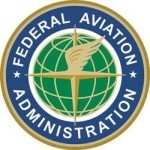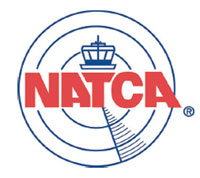Without A Special Session, Agency Will Remain Partially Closed
Until After Labor Day
The U.S. House of Representatives went into recess August 1
without waiting for the Senate to reach a conclusion on authorizing
funds for the FAA, which has been partially shut down since July
22. This means that for the nearly 4,000 employees who have been
furloughed without pay, the earliest they could return to work
would be the first part of September. The Senate adjourned Tuesday
without passing a reauthorization bill or continuing
resulution.

The GOP-controlled House passes an FAA
bill before the gavel fell for the summer recess, according to the
Voice of America and other media sources. But it contained cuts in
"essential air services" at some rural airports which Democrats
want to keep in the bill. Chairman of the Senate Commerce Committee
John D. Rockefeller (D-W.Va.) took to the Senate floor Monday in an
attempt to pass a clean extension through the August recess.
“We are inflicting real pain on very real people,” he
said. “People are suffering. Small businesses are
hurting.”
As Rockefeller moved for expedited passage of an FAA extension
without the disputed provision regarding service to three rural
airports, Sen. Orrin Hatch (R-Utah) objected and blocked the move.
“I share ... Chairman Mica’s frustration that favors to
organized labor have overshadowed the prospect for long-term FAA
reauthorization,” Hatch said. “The House bill would
merely undo a big partisan favor done at the behest of big labor.
The House bill does not create a new hurdle to unionization.
Instead, it restores the long-standing ability of airline employees
to make decisions for themselves.”
The decision to block short-term authorization may prove to be a
costly one. As the FAA is unable to collect ticket taxes, the
Administration stands to lose an estimated $1.2 billion if the
issue is not resolved until the beginning week of September.

The shutdown has also threatened
progress on an approaching deadline for certifying airports to
handle the new Boeing 747-8 freighter—the largest jumbo jet
ever built by the company—as well as putting a hold on
hundreds of millions of dollars in construction contracts at
airports across the U.S.
FAA Administrator Randy Babbitt and DOT Secretary Ray LaHood
held a telephone conference call with the media Tuesday. They
reiterated that since July 22, airports around the country have
lost $2.5 billion in federal dollars for important airport
projects, 70,000 construction workers and workers in related fields
have been laid off, and approximately 4,000 FAA employees have been
on furlough.
LaHood said that safety is being protected even during the
furlough. "No safety issues will be compromised,” he told
reporters on a conference call. “Flying is safe. Air traffic
controllers are guiding airplanes. Safety inspectors are on duty
and are doing their job. No one needs to worry about safety."

But those safety inspectors are reportedly personally footing
the bills for their travel and expenses. The New York Times reports
that it's not clear how long they will be able to do that.
Tuesday, the Senate adjourned without taking action on the bill.
If no action is taken before legislators return from vacation on
September 7, nearly 75,000 people will go without work for another
5 weeks and the FAA will lose approximately $1 billion in
revenues.
Most of those members likely flew home on commercial
airliners.
Before Congress adjourned and left D.C., NATCA joined a growing
chorus of officials and organizations admonishing lawmakers not to
start their summer vacation without passing an FAA extension to put
furloughed employees back to work and re-starting construction
projects.

"All we are asking is for Congress not to leave Washington. Just
don't leave. There's unfinished work on this FAA bill. There's too
much at stake for our aviation system and the dedicated
professionals who maintain and improve it," NATCA President Paul
Rinaldi said in a statement. "Since this(Monday) morning, Congress
squandered another $30 million in lost revenue for critical
projects that affect the safety, efficiency and modernization of
our aviation system, bringing the total to over $270 million lost
since the start of this FAA partial shutdown 10 days ago, along
with leaving 4,000 FAA employees and 70,000 construction workers
laid off and in limbo. Congress must not leave this unfinished
business on its desk before adjourning for the August recess. If
that happens, it would mean Congress, by the time it returns in six
weeks, would have taken $1.5 billion out of the aviation
system.
"Every day of this shutdown means a lost day of progress for the
system and a lost day of pay for these laid off employees. This
bill directly impacts the lives of real people, including skilled
aviation professionals who play a vital role in the safety critical
function of the FAA. They have families who rely on them. They have
bills, mortgages, rents and student loans. Some have kids in
college and tuition is soon going to be due for the fall
semester."

HAI President Matt Zuccaro informed his members that that for
any transportation occurring between July 23 and the eventual
reauthorization of the FAA’s taxing authority, charter
operators may not charge their customers for the following items:
7.5 percent passenger tax, segment fees, international facilities
fees, Alaska/Hawaii fees, and the 6.25 percent cargo tax.
Based upon historical precedent (when aviation excise taxes have
previously expired), HAI and other aviation associations in
Washington believe it is highly unlikely that the taxes could be
applied retroactively.
 ANN's Daily Aero-Linx (05.06.25)
ANN's Daily Aero-Linx (05.06.25) ANN's Daily Aero-Term (05.06.25): Ultrahigh Frequency (UHF)
ANN's Daily Aero-Term (05.06.25): Ultrahigh Frequency (UHF) ANN FAQ: Q&A 101
ANN FAQ: Q&A 101 Classic Aero-TV: Virtual Reality Painting--PPG Leverages Technology for Training
Classic Aero-TV: Virtual Reality Painting--PPG Leverages Technology for Training Airborne 05.02.25: Joby Crewed Milestone, Diamond Club, Canadian Pilot Insurance
Airborne 05.02.25: Joby Crewed Milestone, Diamond Club, Canadian Pilot Insurance







